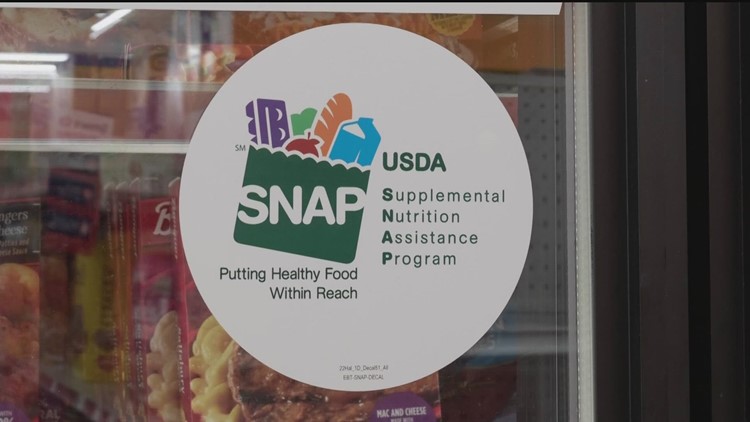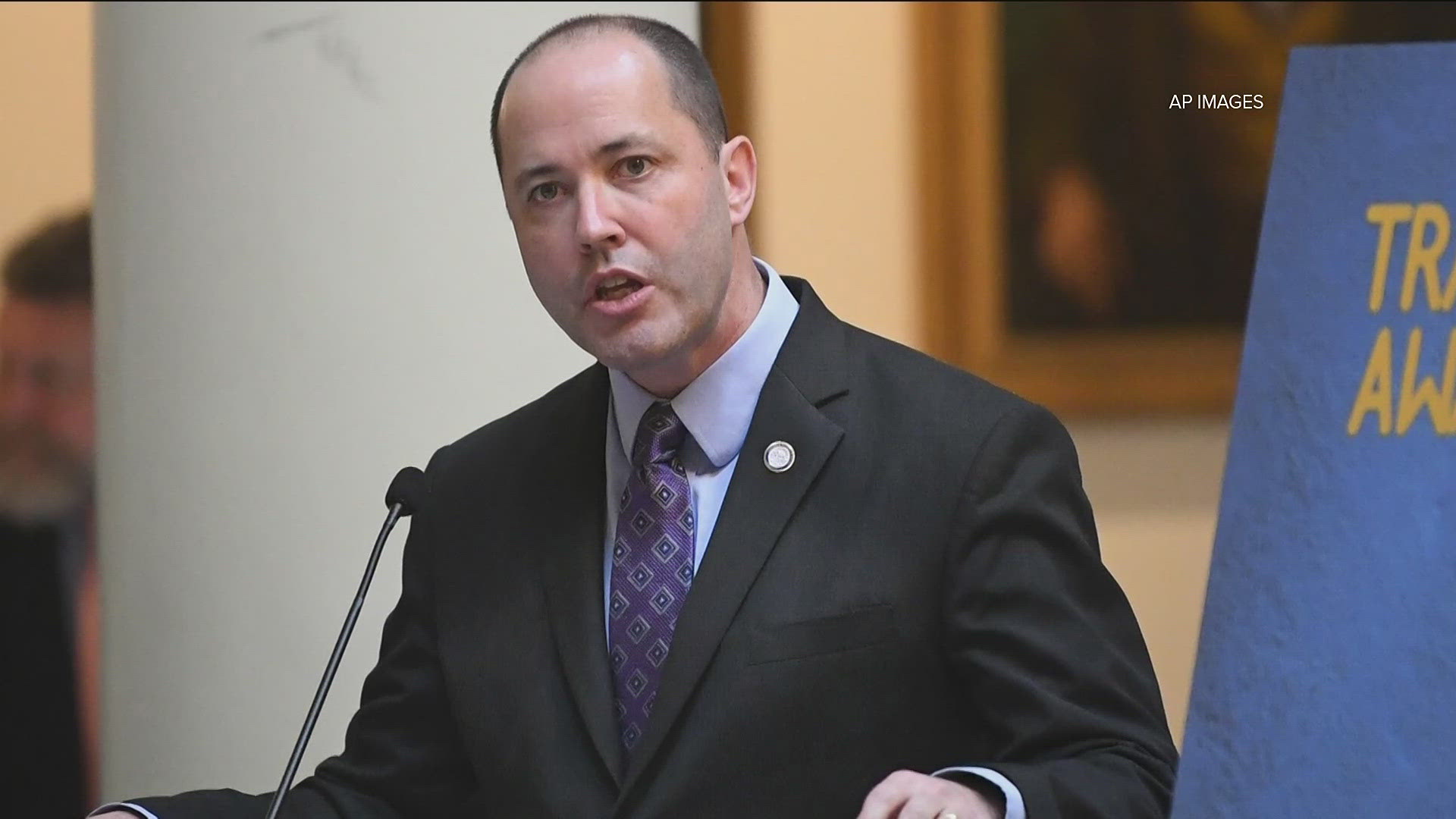GEORGIA, USA — 18 months after 11Alive first reported problems with Georgia SNAP benefits, the state indicates its team has nearly tackled the backlog of renewal cases. Yet, tens of thousands of Georgia families applying for such benefits continue to be impacted by delays, with one-third of applications still not processed within the time frame required by federal law.
While the Georgia Department of Human Services tells 11Alive there is still no timeline to share as to when the backlog will be fully resolved, the latest data from DHS shows approximately 400 SNAP renewals are overdue as of late May. Meanwhile, 32,243 SNAP applications remain overdue.
The number of overdue cases can be a moving target as more families either apply for benefits or additional cases come up for recertification, but a DHS spokesperson confirmed the renewal backlog has reached the point where staff can once again be pivoted to where they’re most needed.
“We have employed a number of techniques to prioritize this issue and support our workers in completing their work as efficiently as possible,” a spokesperson shared. “We have taken advantage of overtime and stipends for our staff and implemented periodic reporting, among other things. We have had a dedicated group of workers focused on the renewal backlog, and now that the renewal backlog has been mostly resolved, we are moving those workers back to focus on applications.”
The move comes as delays persist for families newly applying for SNAP, the Supplemental Nutrition Assistance Program. Data obtained by 11Alive via open records request shows that, according to the March 31 6-month timeliness rate, approximately one-third of SNAP applications are still not being completed on time.
“Our focus has been on completing the renewal backlog and expedited cases,” a spokesperson for DHS shared in response. “With the renewal backlog resolution imminent, we are in the process of shifting staff back to focus on applications.”
11Alive has been investigating issues with the SNAP backlog since November 2022, when SNAP recipients first reached out about waiting for their food benefits before the Thanksgiving holiday. At the time, the state pointed to an increase in need, a shortage of workers and a push for technology to fix the backlog. Yet 11Alive uncovered other reasons for the backup, which carried over into Thanksgiving 2023 and beyond, including additional strain on the department from the state’s ‘one-time cash assistance program’ as well as a related security issue.
Ultimately, federal law requires SNAP benefits to be issued to eligible families within 30 days for the majority of cases and seven days for expedited cases. The U.S. Department of Agriculture, which oversees the federal program, also checks to make sure states are processing new cases on time, using the ‘Application Processing Timeliness' (APT) rate as a quality benchmark.
In November 2023, following back and forth between federal regulators and state officials, the USDA issued a letter to Georgia Department of Human Services Commissioner Candice Broce in response to the state’s declining APT rate. The letter indicated that “Georgia is severely out of compliance with Federal requirements,” as an APT rate of 95% and above is considered acceptable. Georgia's rate, the letter stated, has been "concerning for some time.”
As a result, Georgia DHS was required to submit a corrective action plan defining the reasons the state is experiencing delays with new applications. That plan also had to include strategies and a timeline for Georgia to get back in compliance with federal standards. 11Alive previously reported that the corrective action plan showed the department’s efforts to dig out of a backlog of renewal cases over the past year, leading to delays with new applications. Georgia DHS leaders moved nearly 200 veteran staff members from completing applications to completing renewals after the initial backlog grew.
“Because of that move, Applications Processing Timeliness has gone below 95%,” the plan stated while laying out DHS’ strategy for transferring staff back to their original roles once the renewal backlog decreases.
DHS confirmed that federal regulators ultimately approved the state’s plan in March 2024, and the federal government requires the state to improve its APT rate by a minimum of five percentage points every six months going forward. As of March 31, the 6-month APT rate was 67%, according to state data. Meanwhile, families continue to reach out to 11Alive for help with their cases after struggling to reach caseworkers via phone or get their case addresses at DFCS offices.
When asked about families still waiting, DHS shared the following statement: “Families in need of assistance are encouraged to reach out to us by calling our Customer Contact Center at 1-877-423-4746 or by visiting a DFCS office – find your county’s location and hours of operation at dfcs.ga.gov/locations. Staffing varies by location, and in some cases, additional follow-up may be required.”
11Alive has a running list of resources for families experiencing SNAP disruptions. Viewers who want to speak with a reporter about the delays can email the newsroom.



